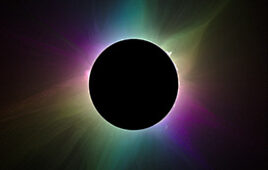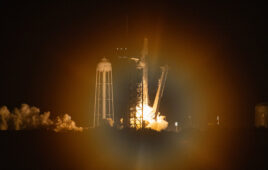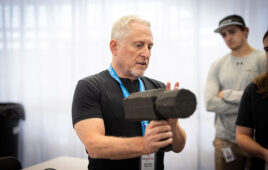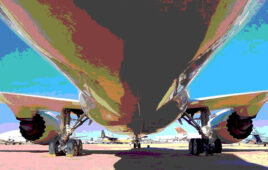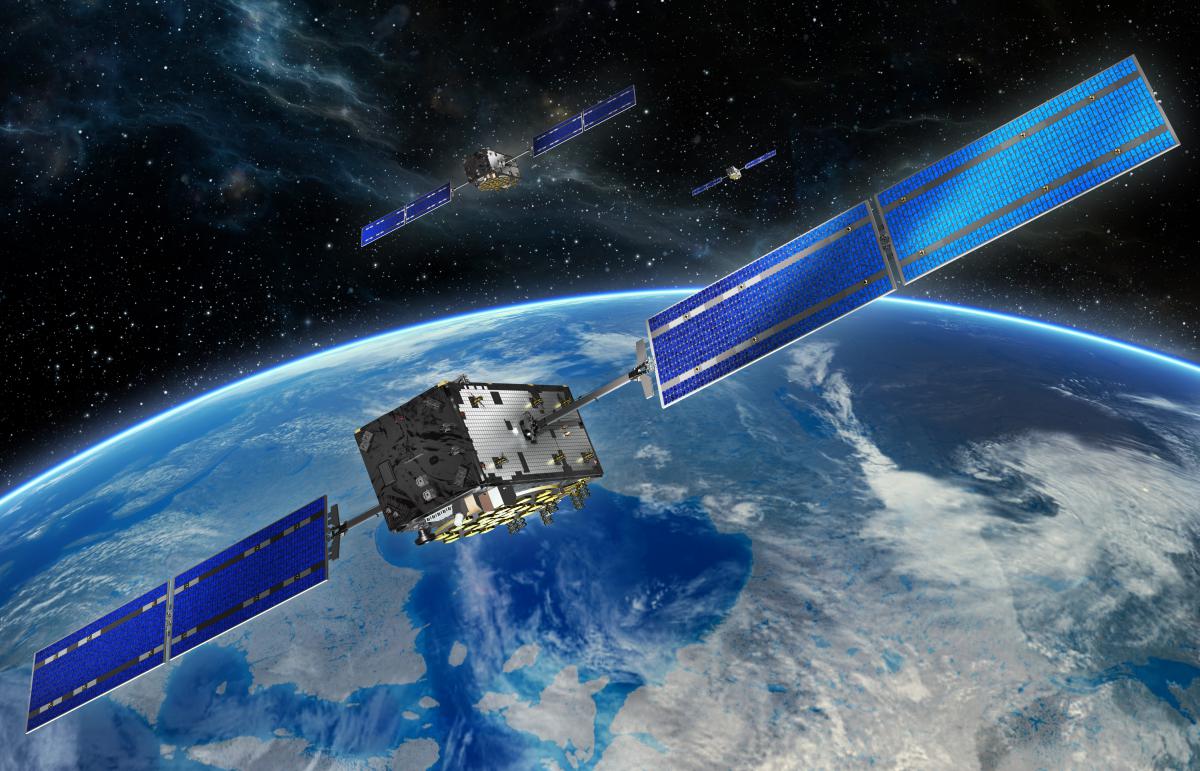
Europe’s Galileo navigation satellites orbit 23 222 km above Earth to provide positioning, navigation, and timing information all across the globe.
Two more Galileo satellites have reached Europe’s Spaceport in French Guiana, joining the first pair of navigation satellites and the Ariane 5 rocket due to haul the quartet to orbit this December.
Galileos 21 and 22 left Luxembourg Airport on a Boeing 747 cargo jet on the morning of Oct. 17, arriving at Cayenne-Félix Eboué Airport in French Guiana on the same day.
Resting within distinctive white air-conditioned containers, the satellites were driven to the cleanroom environment of the preparation building within the space center.
Waiting for them there were Galileos 19 and 20, which arrived in September.
The four satellites will be launched together in mid-December by a customized Ariane 5, the elements of which reached French Guiana last month by sea.
Galileo is Europe’s own satellite navigation system, providing an array of positioning, navigation and timing services to Europe and the world.
A further eight Galileo “Batch 3” satellites were ordered last June, to supplement the 26 built so far.
With 18 satellites now in orbit, Galileo began initial services on Dec. 15, 2016, the first step towards full operations.
Further launches will continue to build the constellation, which will gradually improve performance and availability worldwide.
Source: European Space Agency

